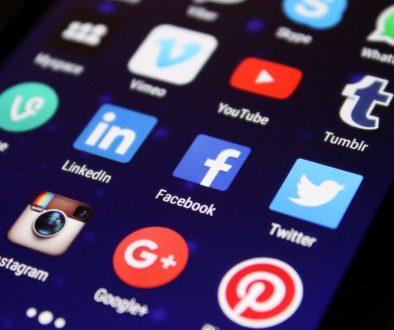Did Booking.Com Fumble Their Trademark Rights In New Super Bowl Ad?
By: CAITLIN CANAHAI
Booking.com’s new self-deprecating ad could mean trouble for their trademark rights. In the travel site’s Super Bowl spot, Idris Elba pokes fun at the company’s name, saying, “We named ourselves Booking.com, which is kind of lit, if we’re talking…literal.” The statement comes on the heels of the brand’s nearly 9-year long legal battle to obtain trademark protection for its name.
Trademarks are words and symbols that consumers use to distinguish the goods or services of one business from another. For instance, “Apple” is a strong trademark for computers. Importantly, trademark protection is denied to generic terms for goods and services. “Apple” could never be protected as a trademark for apples because it communicates the type of product, rather than the source. This principle protects competition in the marketplace, so that companies can accurately describe their goods and services.
As Idris said, “BOOKING.COM” seems like a pretty literal name for a website that allows you to book travel accommodations. In trademark terms, you might say “Booking.com” is generic. This was exactly what the U.S. Patent and Trademark Office (USPTO) decided when Booking.com applied to register its name as a trademark for making hotel reservations in 2012. The USPTO denied the registration on the grounds that “booking” was generic for Booking.com’s services. Adding “.com” to a generic term could create a protectible trademark, because “.com” merely indicates web address and adds no source identifying significance.
Booking.com appealed the USPTO’s decision all the way to the Supreme Court. In 2020, the Court ruled in their favor in United States Patent and Trademark Office v. Booking.com B.V. The Court rejected the USPTO’s rule that the addition of a top-level domain (.com, .org, .net, etc.) to an otherwise unregistrable term could not create a protectible trademark. Instead, the Court ruled, the mark must be considered in its entirety to determine whether consumers perceive it as a trademark. The decision allowed Booking.com to introduce evidence demonstrating that it had taught consumers to perceive “BOOKING.COM” as a trademark through many years of use and advertising.
Following the decision, Booking.com obtained three trademark registrations for its “BOOKING.COM” mark. The registrations issued in January of 2021, over 8 years from the date of the initial applications. Given how much time and money Booking.com invested in proving its mark is not generic, its decision to mock its own name on the biggest advertising day of the year is surprising, to say the least. Trademarks lawyers will tell you that it’s never a good idea to point out how weak your mark is in advertising.
Realistically, Booking.com’s probably doesn’t have anything to worry about. To obtain its registrations, Booking.com already had to prove that consumers primarily understood “BOOKING.COM” to be a brand name. The company introduced survey evidence suggesting that about 74% of participating consumers recognized “BOOKING.COM” as a brand name. So, a tongue-in-cheek joke in a commercial is unlikely to do serious damage to their name recognition.
Still, Booking.com’s new ad campaign highlights the importance of having an experienced trademark attorney advise you on how you use your mark in advertising. Using a trademark in certain ways in advertising can weaken or even eliminate your trademark rights, even after you obtain a trademark registration.
Kloss Stenger & Gormley LLP is a firm with experienced attorneys ready and able to help you with any trademark questions or concerns. Contact us today to get started.




